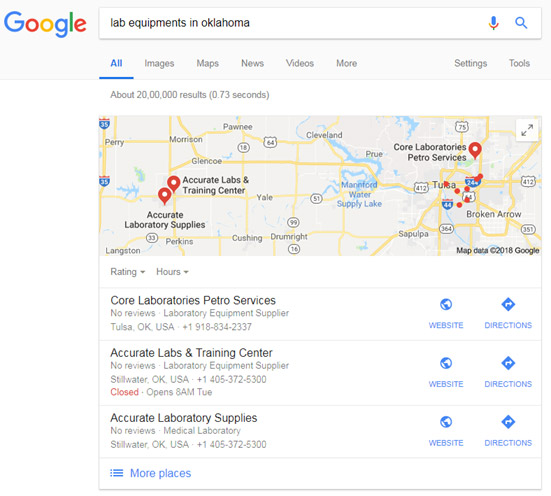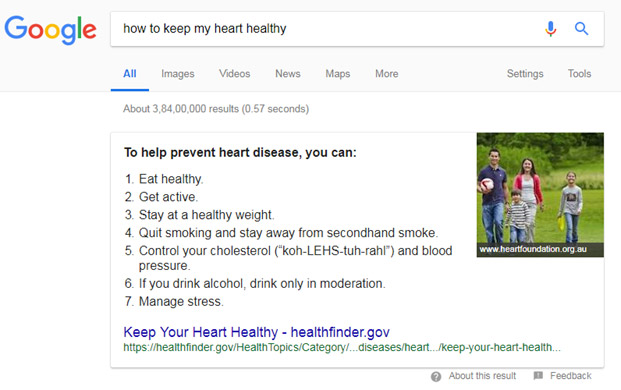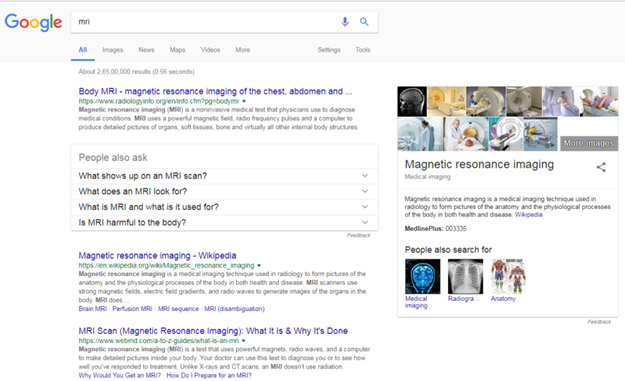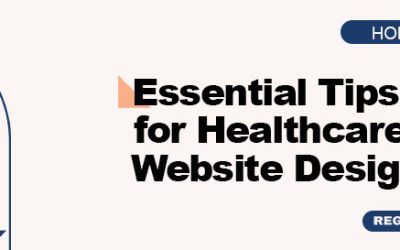Medical SEO is vital to ensure a strong online presence for your healthcare business. The rush to rank high is fierce with businesses employing the latest SEO strategies to beat the competition. Traditionally, SEO has focused on attaining the highest position possible for maximum targeted keywords and key phrases. Now, SEO is changing in keeping with users’ search patterns and consequent changes in search engine algorithms. The question is whether number one ranking is still important.
1. Rank One Is Under Some Threat, We Could Say!
People Google for anything and everything nowadays! And the last time you searched for something, did you notice the many changes in the search results page? Or did you just click on the first link that appeared there? It is likely that you might have noticed something there, and these changes in SERP are not doing much good for the organic number one ranking! For example,
- While searching for some specific-field physician or hospitals, you might have noticed the ‘local 3-pack’, a collection of 3 most rated, and most relevant results for your query.
- You also would have come across the ‘rich answer set’, the box that gives you a quick answer to your query.
- The thin green border on white background with ‘Ad’ written on it (previously, with many other design versions), is a thing to look out for. These ads can appear anywhere in the search results page. If your ad position is ‘1’, you can be assured that yours will be the first ad on that page, but it is not necessary that the ad will be shown above the search results. Ads can appear on the top or bottom of a results page. It is very likely that the viewers see and click your ad if it is on top of the search results page.
- Google Knowledge Graph
Google’s Knowledge Panel, the relatively new type of search entry, is weakening the organic number one ranking to an extent.
To improve the search experience, Google came up with Knowledge Panel, powered by Google Knowledge Graph – the large information box on the right side of your search results page. There’s no way a business or a user could request or manipulate the Knowledge Panel for their business. Google solely depends on information from SERPs, your Google My Business listing, your online presence as a whole and most importantly, your website. Hence, to have your information neatly displayed in a box on the right side of the search results page, you must ensure your online presence should be proper – a well-structured website, active social media channels, local directory listings and a 100% consistent and accurate NAP (name, address, phone).
2. Semantic Search – Its Effects on Rankings
The word semantic means ‘relating to meaning in language or logic’, and when applied to our topic, i.e. search, semantics relates to study of words and their logic. In simple words, semantic search is about improving search accuracy by understanding a user’s query through contextual meaning. To state it simply, semantic search is about natural language algorithms, synonyms and concept matching, and gives its users more interactive search results. It is about understanding the user’s intent and delivering personalized results. A typical example of semantic search is Google Knowledge Graph.
With semantic search, the relationship between keywords and phrases has become fuzzier. Google now tries to match user queries with relevant content rather than just matching the keywords in the content.
Say, you’ve written and published a piece about a smoking cessation program you attended. You’re getting a lot of links for that and these will greatly increase your website’s dominance and will be ranked for almost any related keywords, even those you were not intentionally targeting! That is, as long as you write and publish great, unique content, your rank will show up.
3. Click-through rates affects ranking
Click-through rates (CTRs) are a ‘proportion of visitors to a web page who follow a hypertext link to a particular site’. There is a correlation or a mutually beneficial effect between CTRs and higher rankings, and it goes this way: the higher you rank, the more clicks you receive; the more clicks you receive, the more relevant you appear and higher you rank! But your high rank doesn’t guarantee you a high CTR. You could receive a great deal of traffic for your chosen query but suppose your competitor in the second ranking position has a more attractive offer, they may receive a disproportionate number of clicks. You will then have to optimize your site and metadata to appeal to users.
4. Value – Both Yours and the User’s
High ranks, high CTRs and traffic are important for any brand, but the ultimate value of your SEO strategy is determined by the value of a user on your website. For example, if the users, majority of them, bounce from your website without taking any action with your brand, it won’t matter how high you are ranked. This also depends on how successful you’re branded, your conversion optimization and your UIX.
The SEO landscape has changed but it doesn’t mean you should dump your old SEO strategies. Your company could still have valuable keywords and phrases that are worth targeting as a number one position on SERPs. For the best results, it is not one single strategy that is needed but a holistic approach that considers all possible strategies and focuses on the most relevant/appropriate ones for your healthcare brand. To ensure that you benefit from such an approach, it is best to seek help and advice from a reliable SEO company that can help you achieve your goals.








